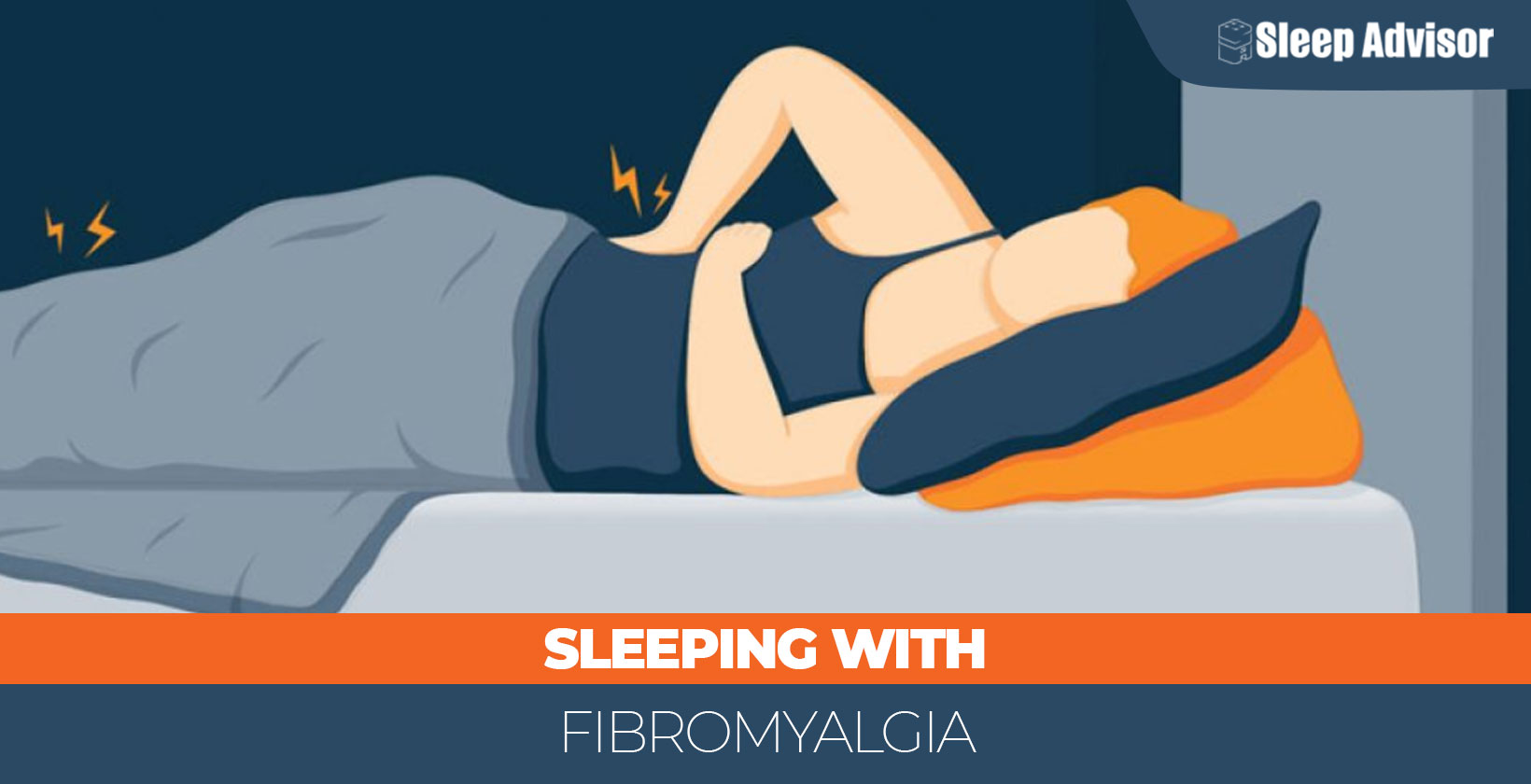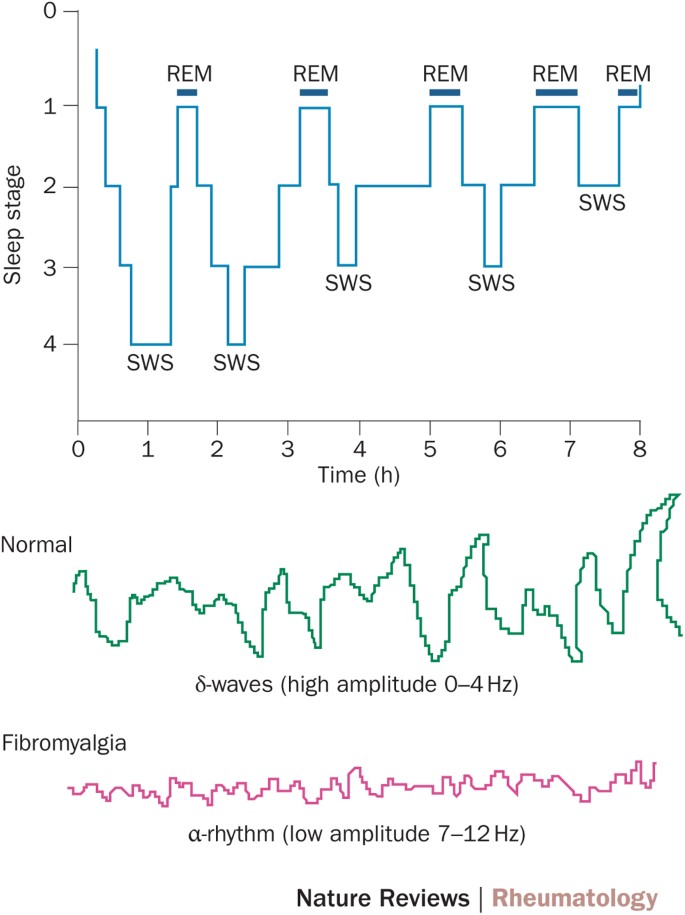Sleeping with fibromyalgia can feel like an uphill battle. You toss and turn, desperately seeking comfort and rest, yet morning comes, and you’re still exhausted.
If this sounds familiar, you’re not alone. Many people with fibromyalgia struggle with sleep, and it can have a profound impact on your daily life. Imagine waking up refreshed and ready to conquer your day, with energy levels that keep you going strong.
The key to unlocking this reality lies in understanding how fibromyalgia affects your sleep and discovering practical solutions that can make a world of difference. You’ll find strategies and insights that can help transform your nights into a haven of restorative rest. Ready to learn more? Let’s dive in and explore ways to reclaim your sleep.
Understanding Fibromyalgia And Sleep Challenges
Fibromyalgia is more than just a pain disorder. It affects every aspect of your life, especially your sleep. Those who live with fibromyalgia often struggle to get a good night’s sleep, adding to the daily challenges they already face. Understanding the connection between fibromyalgia and sleep can help you find ways to improve your rest and overall well-being.
Understanding Fibromyalgia
Fibromyalgia is a chronic condition characterized by widespread pain and tenderness in the muscles and joints. It goes beyond mere discomfort, impacting your energy levels and mood. Many people with fibromyalgia also experience symptoms like fatigue, headaches, and cognitive difficulties known as “fibro fog.”
Living with fibromyalgia often feels like a constant battle against your own body. The unpredictability of symptoms can make it difficult to plan your day. You might wonder if your pain will ease enough for you to sleep tonight. This uncertainty can be frustrating, but understanding your condition helps you manage it better.
Sleep Challenges With Fibromyalgia
Sleep disturbances are common in fibromyalgia. You might find yourself waking up frequently or struggling to fall asleep. This lack of quality sleep can worsen your pain and fatigue, creating a vicious cycle that feels impossible to break.
Many people with fibromyalgia report feeling unrefreshed even after a full night’s sleep. This is because the disorder can affect the stages of sleep, particularly deep sleep, which is crucial for physical restoration. You may experience more sleep interruptions, reducing the overall quality of your rest.
Have you ever noticed that your symptoms worsen after a restless night? This isn’t just coincidence. Poor sleep can heighten pain sensitivity and emotional distress. Addressing sleep challenges can be a key step in managing fibromyalgia symptoms effectively.
Practical Tips For Better Sleep
Creating a relaxing bedtime routine can help signal your body that it’s time to wind down. Consider activities like reading, listening to calming music, or practicing gentle yoga. These can ease your mind and prepare you for a more restful sleep.
Set a consistent sleep schedule by going to bed and waking up at the same time each day. This helps regulate your body’s internal clock. Avoid caffeine and heavy meals before bedtime, as they can disrupt your sleep.
Explore different sleep positions to find one that minimizes your pain. Using a pillow for support can help align your body better and reduce discomfort. Have you tried experimenting with sleep environments, such as adjusting room temperature or using blackout curtains?

Credit: www.sleepadvisor.org
Creating A Sleep-friendly Environment
Creating a sleep-friendly environment is crucial for those with fibromyalgia. Soft bedding and dim lighting can ease discomfort and promote relaxation. Consistent sleep schedules and quiet surroundings help soothe the body, making rest more attainable.
Creating a sleep-friendly environment is crucial for those with fibromyalgia. Pain and discomfort often disrupt sleep, making rest elusive. By tailoring your surroundings, you can enhance sleep quality. A few changes can make a big difference. Explore ways to transform your space into a restful haven.
Choosing The Right Mattress
A supportive mattress can ease fibromyalgia symptoms. Look for one that balances firmness and softness. Memory foam or hybrid mattresses often provide good support. They contour to your body, reducing pressure points. Test different options to find the best fit. A comfortable mattress can improve rest and relieve pain.
Optimal Room Temperature
Room temperature impacts sleep quality significantly. Aim for a cool, comfortable setting. Experts suggest keeping your bedroom between 60-67°F. This range helps your body maintain a natural sleep rhythm. Use fans or air conditioning to adjust the temperature. A cooler room can promote deeper, more restful sleep.
Minimizing Noise And Light
Excessive noise disrupts sleep cycles. Consider using earplugs or a white noise machine. These tools can drown out disturbing sounds. Light also affects sleep patterns. Install blackout curtains to block external light. Dim any electronic screens at night. A dark, quiet space encourages better sleep.
Establishing A Bedtime Routine
Creating a calming bedtime routine can aid sleep for those with fibromyalgia. Gentle stretching and warm baths help relax muscles. Consistent sleep schedules improve rest quality, easing fibromyalgia symptoms.
Establishing a bedtime routine is crucial for managing fibromyalgia symptoms. Consistent sleep can significantly impact your daily well-being. It may seem challenging, but with a few deliberate changes, you can create a peaceful night’s sleep. Let’s dive into some practical tips that could make your nights more restful.
Consistent Sleep Schedule
Going to bed and waking up at the same time every day helps regulate your body’s internal clock. This consistency can make it easier to fall asleep and wake up refreshed. Set a sleep and wake time that you can stick to, even on weekends. Having a routine isn’t just for kids. Adults benefit from sleep regularity too. If you stay up late watching movies on Saturday, your body might resist waking up on Monday.
Relaxation Techniques
Before bed, engage in activities that calm your mind and body. Gentle yoga stretches or deep breathing exercises can ease muscle tension. Meditation or listening to soft music also prepares your brain for sleep. Think about the last time you felt truly relaxed. Was it during a hot bath or while reading a book? Make these activities a regular part of your pre-sleep ritual.
Limiting Screen Time
The blue light from screens can interfere with your body’s ability to produce melatonin, a hormone that promotes sleep. Try to turn off all electronic devices at least an hour before bed. This includes your phone, TV, and computer. Consider what you could do instead. Perhaps talk with a loved one or try a new hobby that doesn’t involve screens. How would your sleep improve if you spent the last hour of your day away from technology? Establishing a bedtime routine is about making small, manageable changes. These tweaks can make a big difference in how well you sleep with fibromyalgia. How will you adjust your nightly habits tonight?

Credit: www.sleepare.com
Diet And Lifestyle Modifications
Managing fibromyalgia often requires changes in diet and lifestyle. Eating balanced meals and exercising regularly can improve sleep quality. Creating a calming bedtime routine may help reduce pain and stress, leading to more restful nights.
Managing fibromyalgia often feels like a delicate balancing act, especially when it comes to sleep. Making thoughtful diet and lifestyle modifications can have a significant impact on your quality of rest. These changes, while sometimes challenging, are essential steps towards managing your symptoms more effectively and sleeping better at night.
Caffeine And Alcohol Consumption
Caffeine and alcohol can be sneaky saboteurs of a good night’s sleep. Consider cutting back on coffee, tea, and energy drinks, especially in the afternoon and evening. Alcohol might help you fall asleep faster but it disrupts your sleep cycle, leading to poorer sleep quality. Try swapping your usual caffeinated drinks for herbal teas or warm water with lemon. Notice how your body responds. Are you sleeping more soundly or waking up less frequently? It might surprise you how these small changes can make a big difference.
Balanced Diet For Better Sleep
A balanced diet isn’t just about maintaining weight; it plays a crucial role in your sleep quality too. Foods rich in magnesium, like leafy greens and nuts, can support better sleep. A simple dinner of grilled salmon and a spinach salad might be just what your body needs. Keep your evening meals light and avoid heavy, rich foods that can disturb your sleep. Have you ever felt too full to fall asleep comfortably? Try eating your main meal earlier in the evening and see if it helps you relax more at bedtime.
Regular Physical Activity
Regular physical activity is a powerful ally in your quest for better sleep with fibromyalgia. Even a daily walk can help reduce symptoms and improve sleep quality. Aim for at least 30 minutes of moderate exercise, like walking or cycling, most days of the week. Listen to your body and find activities that you enjoy and that don’t exacerbate your symptoms. Do you feel more relaxed after a gentle yoga session or a brisk walk? Experiment with different activities and track how they influence your sleep and overall well-being.
Managing Pain For Improved Sleep
Managing pain for improved sleep can be challenging for those with fibromyalgia. Pain and discomfort often disturb sleep, leading to fatigue and more pain. Finding ways to manage this pain is crucial for a better night’s rest. Explore different methods and strategies to help you sleep more comfortably.
Pain Relief Strategies
Identifying effective pain relief strategies is key. Gentle exercises can help reduce stiffness and pain. Stretching keeps muscles flexible. Yoga and tai chi improve relaxation and reduce pain. Heat therapy can soothe aching muscles. Warm baths or heating pads might be beneficial.
Medications And Supplements
Some medications can ease fibromyalgia pain. Over-the-counter pain relievers like ibuprofen may help. Doctors might suggest prescription medications for severe cases. Certain supplements might also support pain relief. Magnesium and vitamin D are often recommended. Consult with a healthcare provider before trying new medications or supplements.
Alternative Therapies
Alternative therapies offer additional options. Acupuncture can help decrease pain levels. Massage therapy may provide relief and relaxation. Aromatherapy uses scents to calm the mind and body. Essential oils like lavender can promote better sleep. Meditation and breathing exercises can reduce stress and pain.
Mindfulness And Stress Reduction
Practicing mindfulness can ease stress and improve sleep for those with fibromyalgia. Simple breathing exercises calm the mind. Relaxation techniques help manage pain and enhance rest.
Managing fibromyalgia can feel overwhelming, especially when it comes to getting a good night’s sleep. Stress often exacerbates symptoms, making relaxation crucial. Mindfulness and stress reduction techniques offer practical solutions to ease tension and improve sleep quality. By integrating these methods into your routine, you might find unexpected relief and a path to more restful nights.
Meditation Practices
Meditation is a powerful tool for calming the mind and reducing stress. Even a few minutes daily can make a noticeable difference in how you feel. Try sitting quietly, focusing on your breath, and gently bringing your attention back whenever your mind wanders. Consistency is key. Setting aside time each day for meditation can help you build resilience against stress. You might be surprised at how much easier it becomes to relax at night.
Breathing Exercises
Breathing exercises can be a simple yet effective way to manage stress and improve sleep. One technique is to inhale deeply through your nose, hold for a few seconds, and exhale slowly through your mouth. Repeating this cycle a few times can help calm your nervous system. Consider trying this exercise before bed to signal your body that it’s time to wind down. Have you ever noticed how your breath changes when you’re anxious? Being mindful of your breathing can be a great way to counteract stress.
Cognitive Behavioral Therapy
Cognitive Behavioral Therapy (CBT) offers practical strategies to change negative thought patterns. If stress keeps you awake, CBT might help you identify and challenge those thoughts. This approach empowers you to replace them with more positive, calming ones. Working with a therapist can provide personalized guidance, but there are also self-help resources available. Have you considered how changing your thoughts could change your sleep patterns? Exploring CBT might lead to surprising improvements in your overall wellbeing. By incorporating mindfulness and stress reduction techniques, you can take active steps towards better sleep. These practices are not just about relaxing; they’re about reclaiming control over your nights, one breath at a time.
Seeking Professional Help
Living with fibromyalgia can be a constant battle, especially when sleep becomes elusive. You might have tried every remedy under the sun, but the restless nights persist. If sleeplessness is impacting your quality of life, it might be time to seek professional help. This isn’t a sign of defeat; it’s a proactive step towards finding relief.
When To Consult A Specialist
If you’ve been struggling to get a good night’s sleep for weeks, it’s time to consult a sleep specialist. Persistent sleep issues could be a sign of deeper health problems. A specialist can provide insights that are difficult to uncover on your own.
Sleep Studies And Diagnoses
Sleep studies are a powerful tool in diagnosing sleep disorders linked to fibromyalgia. These studies monitor your sleep cycles, breathing, and heart rate. They can reveal if sleep apnea or other conditions are present.
Many people are surprised by what sleep studies uncover. You may learn about conditions you never suspected. This data is crucial for healthcare providers to tailor treatment plans specifically for you.
Working With Healthcare Providers
Effective communication with your healthcare provider is key. Share detailed sleep logs and symptoms with them. This helps create a more accurate diagnosis and a personalized treatment plan.
Consider asking your provider about the latest treatments for fibromyalgia-related sleep issues. Are there new medications or therapies available? Your healthcare team can guide you in exploring options you might not be aware of.
Ultimately, engaging with specialists can open doors to solutions you might not have considered. Have you ever thought about how much better life could be with restful sleep? Seeking professional help could be your first step towards that reality.

Credit: www.nature.com
Frequently Asked Questions
What Is Fibromyalgia And Its Symptoms?
Fibromyalgia is a chronic condition causing widespread pain and fatigue. Symptoms include muscle pain, sleep disturbances, and cognitive difficulties. Many people also experience headaches and depression. Understanding these symptoms can help in managing the condition better.
How Does Fibromyalgia Affect Sleep Quality?
Fibromyalgia often leads to sleep disturbances like insomnia and non-restorative sleep. Pain and discomfort can disrupt sleep patterns, making it hard to get restful sleep. Improving sleep quality is crucial for managing fibromyalgia symptoms effectively.
What Sleep Positions Help With Fibromyalgia?
Side sleeping with a pillow between your knees can reduce pressure on joints. A supportive mattress and a good pillow can also help. Finding a comfortable position is essential to minimize pain and improve sleep quality.
Can Lifestyle Changes Improve Sleep With Fibromyalgia?
Yes, regular exercise and a healthy diet can improve sleep quality. Reducing stress through relaxation techniques like yoga and meditation can also help. Establishing a consistent sleep schedule is beneficial.
Conclusion
Finding restful sleep with fibromyalgia can be challenging but not impossible. Simple changes can make a big difference. Try creating a calming bedtime routine. This may include gentle stretching or soothing music. Keep your bedroom cool and dark. Avoid screen time before bed for better sleep quality.
Consider discussing sleep aids with your doctor. Remember, every small step counts. Consistency is key in improving sleep. Listen to your body and make adjustments. With patience, you can find a sleep routine that works for you. Sleep is important, so give your body the rest it needs.
